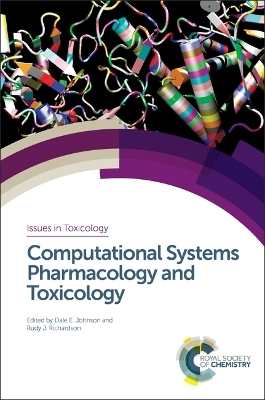
Computational Systems Pharmacology and Toxicology
Royal Society of Chemistry (Verlag)
978-1-78262-332-8 (ISBN)
The network approaches of systems pharmacology and toxicology serve as early predictors of the most relevant screening approach to pursue both in drug discovery and development and ecotoxicological assessments. Computational approaches have the potential to improve toxicological experimental design, enable more rapid drug efficacy and safety testing and also reduce the number of animals used in experimentation. Rapid advances in availability of computing technology hold tremendous promise for advancing applied and basic science and increasing the efficiency of risk assessment.
This book provides an understanding of the basic principles of computational toxicology and the current methods of predictive toxicology using chemical structures, toxicity-related databases, in silico chemical-protein docking, and biological pathway tools. The book begins with an introduction to systems pharmacology and toxicology and computational tools followed by a section exploring modelling adverse outcomes and events. The second part of the book covers the discovery of protein targets and the characterisation of toxicant-protein interactions. Final chapters include case studies and additionally discuss interactions between phytochemicals and Western therapeutics.
This book will be useful for scientists involved in environmental research and risk assessment. It will be a valuable resource for postgraduate students and researchers wishing to learn about key methods used in studying biological targets both from a toxicity and pharmacological activity standpoint.
Dr Dale E. Johnson is currently an Adjunct Professor in Molecular Toxicology at UC Berkeley and an Adjunct Professor in Environmental Health Sciences at the University of Michigan. He teaches computational toxicology, drug discovery & development, and lectures in pharmacogenomics. He is also President and CEO of Emiliem, Inc. and CEO of Elara Bioscience LLC, a software company. He also consults for biopharmaceutical companies and investment firms. Dr Johnson has over 30 years’ experience as a research and development scientist, manager, executive, and entrepreneur in the biopharmaceutical field working in large pharmaceutical and biotech companies and several start-ups. Prior to Emiliem, he served as VP Drug Assessment & Development and VP Preclinical Development at Chiron Corporation and previously worked at Hoechst-Roussel Pharmaceuticals, International Research and Development Corp., Medical Research Division of American Cyanamid, Eos Biotechnology and Ddplatform. Dr Rudy J. Richardson is currently the Dow Professor of Toxicology at the University of Michigan. He also holds a joint appointment in the Neurology Department. Sabbatical leaves at Warner-Lambert/Parke-Davis (now Pfizer) in Ann Arbor and the University of Padua in Italy. Dr Richardson has served several times as the Director of the Toxicology Program, and currently he serves as Graduate Chair of the EHS Department. His research interests include computational toxicology, biomarkers and biosensors of exposure and disease, mechanisms of neurodegenerative disease, chemistry and toxicology of organophosphorus and organic nitro compounds, and interactions of toxicants with target macromolecules.
Systems Biology Approaches in Pharmacology and Toxicology;
Databases Facilitating Systems Biology Approaches in Toxicology;
Tools for Green Molecular Design to Reduce Toxicological Risk;
Linking Environmental Exposure to Toxicity;
Linking Drug or Phytochemical Exposure to Toxicity;
Chemical Similarity, Shape Matching and QSAR;
In silico Chemical-Protein Docking and Molecular Dynamics;
Computational Tools for Chemical Toxicity Testing and Risk Assessment Under the Framework of Adverse Outcome Pathways;
In silico Toxicology: An Overview of Toxicity Databases, Prediction Methodologies and Expert Review;
Data Sources for Herbal and Traditional Medicines;
Network Pharmacology Research Approaches for Chinese Herbal Medicines;
Chemical-Disease Category Linkage (CDCL): Computational Methods Linking Traditional Chinese Medicines and Western Therapeutics;
Educational Programs for Computational Toxicology and Pharmacology
| Erscheinungsdatum | 27.07.2017 |
|---|---|
| Reihe/Serie | Issues in Toxicology ; Volume 31 |
| Verlagsort | Cambridge |
| Sprache | englisch |
| Maße | 156 x 234 mm |
| Gewicht | 678 g |
| Themenwelt | Informatik ► Weitere Themen ► Bioinformatik |
| Studium ► 2. Studienabschnitt (Klinik) ► Pharmakologie / Toxikologie | |
| Naturwissenschaften ► Biologie ► Biochemie | |
| ISBN-10 | 1-78262-332-9 / 1782623329 |
| ISBN-13 | 978-1-78262-332-8 / 9781782623328 |
| Zustand | Neuware |
| Informationen gemäß Produktsicherheitsverordnung (GPSR) | |
| Haben Sie eine Frage zum Produkt? |
aus dem Bereich


